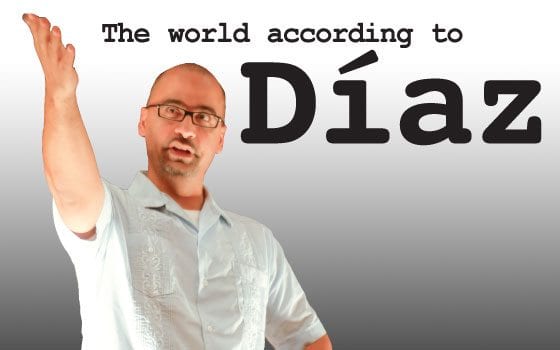

Author: Boston Public SchoolsPulitzer Prize-winning author Junot Díaz’ advice for anyone who wants to become a writer: “First of all, read.”
When Junot Díaz speaks, you can hear in his voice the combination of two distinct facets — the writer’s dexterity and the immigrant’s experience — that earned him the 2008 Pulitzer Prize in fiction for his novel “The Brief Wondrous Life of Oscar Wao.”
The author and Massachusetts Institute of Technology professor gives precise and clear explanations about his specialty — the art and craft of writing.
“As an artist, your entire career, your entire way of being is predicated on making mistakes,” he recently said to an audience of Boston Day and Evening Academy (BDEA) students. “You make mistakes for a living. You take wrong turns as a form.”
Born in the Dominican Republic and raised by a big working-class family that immigrated to New Jersey, Díaz employs the same clarity — and a liberal helping of street language — in describing his tough childhood.
“My mother wanted us to be something that would mean that we wouldn’t have to work like ‘perros’ (the Spanish word for ‘dogs’) for the rest of our lives,” he said. “And when I told her I wanted to be an artist, it was just a shocker.
“Ella casi se cagó” — translation: “She almost s*** herself” — he said, provoking resounding laughter from the audience.
With his lecture, Díaz reached out to dozens of BDEA students who stayed after class to hear him at the school’s auditorium. The year-round public high school in Roxbury serves 350 students who are over-age for their grade level and at high risk of dropping out of school. Most of them have jobs or children.
BDEA senior Mercedes Castillo, who introduced Díaz to the audience, said she thinks the writer has been an inspiration to many Dominican immigrants.
“He is so blunt, so straightforward, and his writing is the same way,” said Castillo, 19, who has a 2-year-old son named Jayden. “He is very realistic about what’s really going on out there.”
Castillo, who is on track to graduate from BDEA in December, is considering becoming a writer. She said Díaz’s lecture provided even more encouragement to head in that direction, noting that his success proves to other Dominicans that it is possible to overcome great challenges.
“There’s not many Dominican writers that are recognized the way he is,” said Castillo.
The third of five children, Díaz, 39, was born in the neighborhood of Villa Juana, in the Dominican capital of Santo Domingo. He lived with his mother and grandparents until he was 6, while his father worked in the United States. They were all reunited in 1974, when the family moved to Parlin, N.J. His father was a forklift operator. His mother cleaned houses.
“My family started out very poor in Santo Domingo, immigrated to the United States and remained very poor,” said Díaz. “And when you’re a kid in this kind of family, the dreams are almost all tied to your success.
“My family was like, ‘Yo, if this kid pans out, we might be able to pay the … rent,’ and that’s a lot of pressure for a young person.”
Díaz grew up, as he says, “being part-time adult.”






